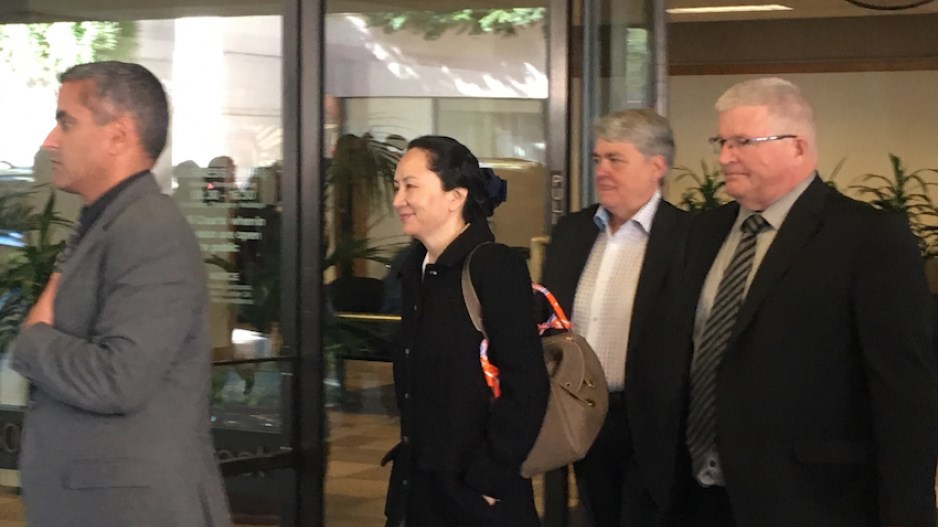The extradition hearings for Huawei Technologies CFO Meng Wanzhou completed its witness testimony portion on Monday, as the last of 11 witnesses took the stand via videocall from Ottawa.
Jayson Allen, a network security analyst who works with the RCMP e-mail security, told the court that he conducted a search of retired RCMP member Ben Chang's e-mails from Dec. 1, 2018 - the day of Meng's arrest in Vancouver - to Oct. 7, 2019, by which point the police officer had retired.
The search of the emails, done through the RCMP external e-mail security scanner that would have logged all outgoing and incoming e-mails for the RCMP web domain, found no contact with the U.S. Federal Bureau of Investigation, Allen told the court.
"You have no control of what e-mails get sent to your scanner, correct?" Crown lawyer John Gibb-Carsley asked.
"No, I do not," Allen replied.
"Would it have captured an RCMP officer using his RCMP mail account on a personal device?" Gibb-Carsley continued.
"Yes, it would have," Allen said.
Meng lawyer Scott Fenton countered that the searches on the Cisco IronPort scanner is not an actual scan of the RCMP e-mail database itself. and that not all RCMP e-mails are recorded on the scanner.
As such, Fenton called the search "limited," adding that the scanner would not pick up internal e-mails between two RCMP accounts - and that Allen did not do a search of other RCMP members' contact with the FBI.
"Were you aware that Ben Chang's e-mails were destroyed when he retired?" Fenton asked.
"No," Allen noted.
"Were you asked to search the results of other RCMP officers for potential contact with the FBI?"
"I was not," Allen replied.
"Is it not true that you can do a search of recipients to see if a foreign law-enforcement agency like the FBI was on the list? Was it done in this case?" Fenton asked.
"It was not," Allen said.
Chang is the police officer that the defence is alleging sent Meng's electronic device passwords to the FBI after the codes were collected by the Canada Border Services Agency during the Chinese executive's entry exam into Canada. The collection of the data - and how it ended up being taken by the RCMP in violation of protocol, as well as if the information was then passed on the U.S. investigators to assist their case against Meng - has become the central argument in the case.
Incidentally, Chang - who now lives in the Chinese Special Administrative Region of Macau - has refused thus far to return to Canada to testify.
With Allen's testimony complete, the court has now been adjourned to Dec. 23, when a case-management hearing will take place to sort out how the hearings' scheduling will work in 2021.
With the Crown expected to file a secondary supplemental record of the case - an updated version of how Canadian authorities view the facts in the Meng extradition case so far - shortly, Meng's defence is already anticipating a number of challenges on whatever the new document may include.
Meanwhile, the defence is also expected to introduce a fourth branch to its abuse-of-process allegations against Canadian and U.S. officials in the arrest of Meng - something that will also likely generate prolonged debate between the two sides in court next year.
As such, B.C. Supreme Court Associate Chief Justice Heather Holmes has already agreed that the original February 2021 dates set for the hearings to recommence will be vacated. Instead, the tentative schedule looks like the hearings will restart March 1 and take up the entirety of the month and into early April.
Holmes had said she would like to announce a decision on the case in a timely manner and preferred if the court dates do not drag on beyond April.




